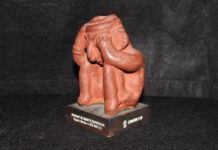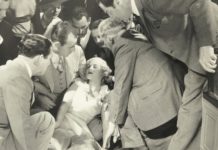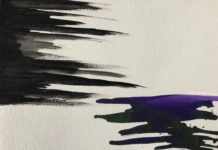The First Studies of Antidepressant Withdrawal
The history of antidepressant withdrawal dates to the first articles on imipramine in the late 1950s. It is useful to compare discussion of both generations of psychiatric drugs and focus on shared efforts to deny and minimize their withdrawal syndromes.
How Psilocybin-Assisted Therapy Changed My Life
I don’t drink or smoke. I’ve never taken any drugs till four years ago. Yet today, my life revolves around psychedelic medicines—heavily stigmatized substances still illegal in this country and most others across the world. How did this happen?
A Letter to the American Psychiatrist Who Labeled Me
The bipolar label and the drugs you prescribed after talking with me for half an hour robbed me of my humanity. What did they not do? Prevent any of the psychotic episodes I had after the first one.
You’ve Got to Be Crazy to Go to a Psychiatrist
To those who say that major scientific/medical advances since 1975 have made going to a biological psychiatrist a rational choice, I say: What advances?
45 years have passed: Is any psychiatric “diagnosis” now verified by lab test, x-ray, or physical exam finding?
Chemical Restraints ‘May Be Abuse’
From 7 News Australia: Consultant pharmacist Manya Angley told a royal commission that unless such drugs were prescribed as a last resort, then the person had been denied their right to proper intervention and care.
Addiction Treatment: How Many Meds Does It Take to Get Sober?
I started to wonder, “How many medications does it take to get sober?” In fact, the biggest correlation I’ve noticed with relapse and overdose is the amount of psychiatric medications being prescribed.
Unblinding in Antidepressant Trials Biases Results
Studies that compare the effectiveness of different antidepressant drugs are unreliable, according to new research in BMC Psychiatry.
Obituary: Ethel “Effie” Smith, Founder of Consumer Action Network (CAN)
From The Washington Post: Effie's tireless effort to improve service quality and to promote new opportunities for empowerment and recovery have left an indelible mark on DC.
How Mindful Awareness Can Reduce Suffering
Suffering can be altered when people learn how to respond differently to their pain. This is the principle behind mindfulness-based stress reduction, which was designed to incorporate Buddhist practices into chronic pain treatment.
Overheated, then Overtreated: My 10-Day Involuntary Hold
Had the hospital simply treated me for heatstroke, they would have made next to nothing. But 11 days in the hospital (10 on a locked ward) and a battery of tests and psych drugs? Well, I’ll let you do the math.
FDA Requiring Boxed Warning Update for Benzodiazepine Drug Class
From the U.S. Food & Drug Administration: The FDA is requiring the update for all benzodiazepines "to address the serious risks of abuse, addiction, physical dependence, and withdrawal reactions."
Suicidal Thoughts, Psychiatric Diagnosis, and What Really Helps: Part Two
This piece is the second of a two-part essay about suicide, diagnosis, what doesn't help, and what does help. This part is about barriers to seeking help and about the ways we actually can be of help to people who are considering suicide.
Suicidal Thoughts, Psychiatric Diagnosis, and What Really Helps: Part One
This piece is the first of a two-part essay about suicide, diagnosis, what doesn't help, and what does help. This part is about suicide, diagnosis, and some of what fails to help.
Psychiatry’s Intellectual Crisis: Giovanni Fava, MD
From Psychiatric Times/Conversations in Critical Psychiatry: "Psychiatry is going through an intellectual crisis [that] is shared by other areas of clinical medicine and stems from a narrow concept of science."
Leading Psychology in Existential Times: An Interview with Kirk Schneider
MIA’s Justin Karter interviews humanistic-existential psychologist Kirk Schneider about how psychology can play a role in confronting the political, social, and climate crises facing humankind.
VICE, MIA and The Movement Against Psychiatry
The Vice article was presented as an exploration of the “movement against psychiatry,” and yet you can see, once it is deconstructed, how it told a story that surely pleased the promoters of the conventional narrative, and put the “critics” on the defensive at almost every turn.
Nursing Homes Oust Unwanted Patients With Claims of Psychosis
From The New York Times: Across the U.S., nursing homes are looking to get rid of unprofitable patients and pouncing on minor outbursts to justify evicting them to emergency rooms or psychiatric hospitals.
The Thoughtful Counselor: Questioning Biological Explanations with Peter Simons
From The Thoughtful Counselor: MIA Science Writer and Blogs Editor Peter Simons questions the scientific methods and clinical utility of biological explanations for mental distress in a podcast interview with The Thoughtful Counselor.
Why Is the APA Proposing Sweeping Changes to Training Requirements?
The American Psychological Association has proposed sweeping changes to training, focusing on the behavioral health model, which reduces the complexity of the human experience to observable behaviors.
“I Found My Lion’s Roar”: Ro Speight on Combining Peer Support and Open Dialogue
MIA's Ana Florence interviews recovery advocate Ro Speight about her journey from receiving Peer Support to working as a facilitator in Peer Partnered Open Dialogue.
Somewhere for West Virginians to Turn with Covid-Related Stress
From West Virginia MetroNews: There's a big need for the new "emotional strength line" unveiled by First Choice Services, as a 2018 CDC study cited West Virginia as having the worst mental health of any state.
Up in the Air: Surviving 24 Hours with Akathisia
Flying from Anchorage to Cleveland while suffering from life-threatening akathisia was going to be a constant push-pull between the urge to freak out and maintaining my body and psyche so as not to scare the other passengers.
St. Elizabeths Has Increased Usage of Restraints on Patients, Report Says
From The Washington Post: “On multiple occasions, St. Elizabeths staff disregarded the legal and policy requirements of using restraint and seclusion that were promulgated to prevent widespread use and abuse,” the report said.
Malcharist: Fact or Fiction? Big Pharma, Psychiatry’s Key Opinion Leaders and their Ghostwriters
Malcharist, by Paul John Scott, is a fictional account of one of psychiatry’s most influential key opinion leaders (KOLs), his ghostwriter, and a journalist on the trail of a big scandal in the world of Big Pharma.
The Mirror Repeats: The Art of Phoebe Sparrow Wagner
It is uncomfortably difficult to look at Phoebe Sparrow Wagner’s art. That much is intentional. She shakes up the viewer’s sense of wellbeing and security so that they can better identify with the plight of the mental patient.

































